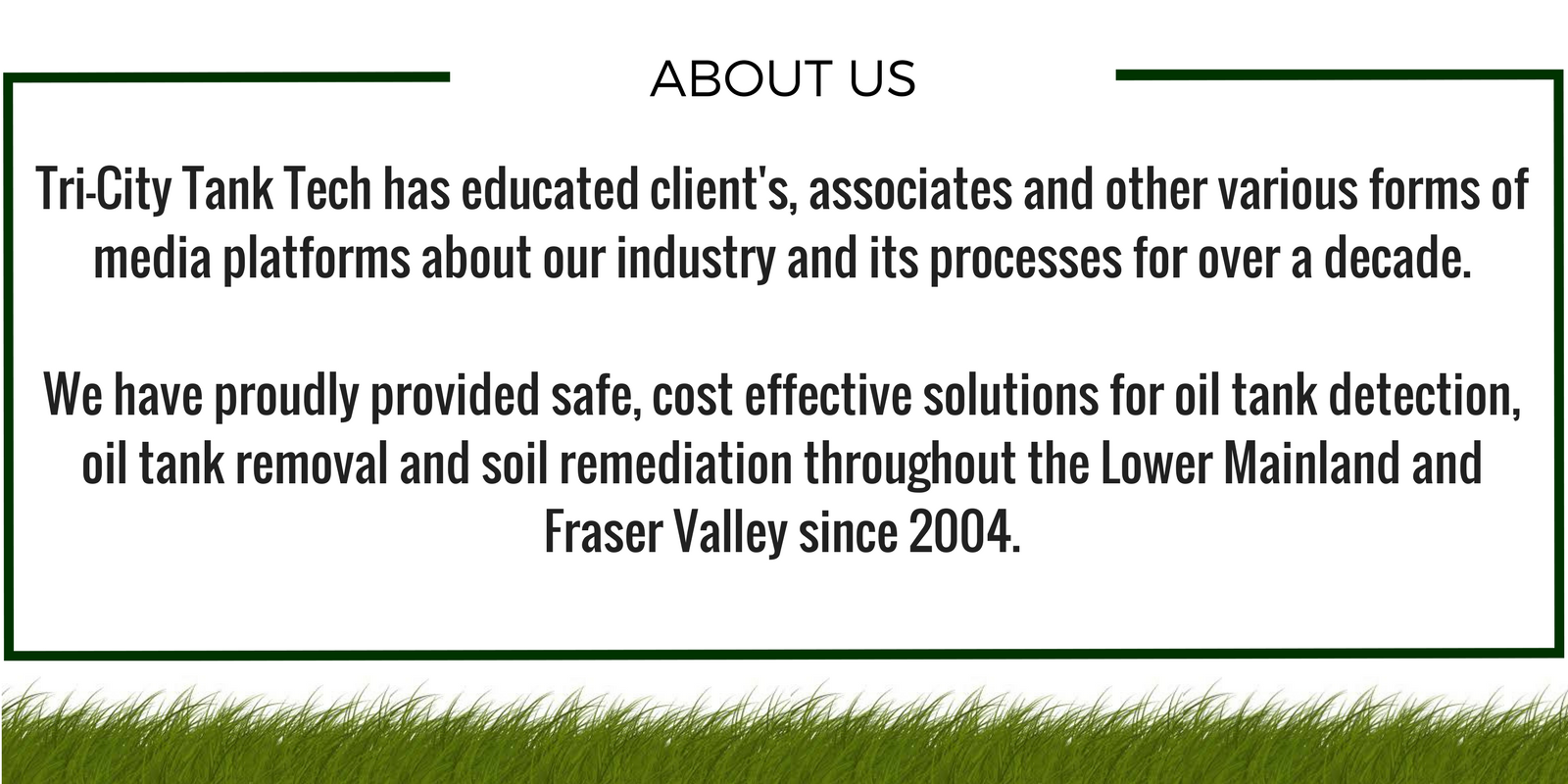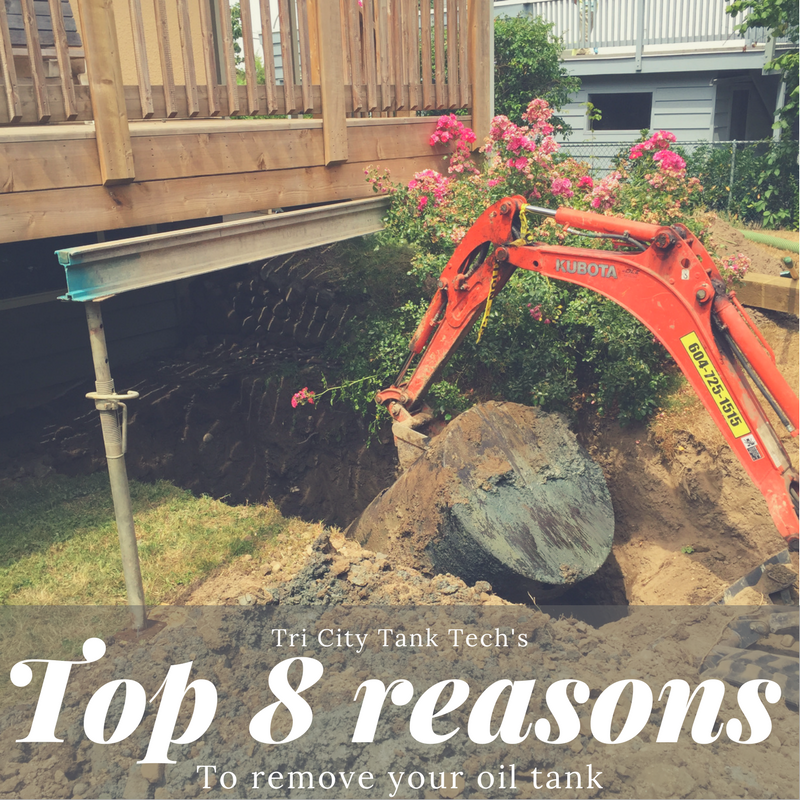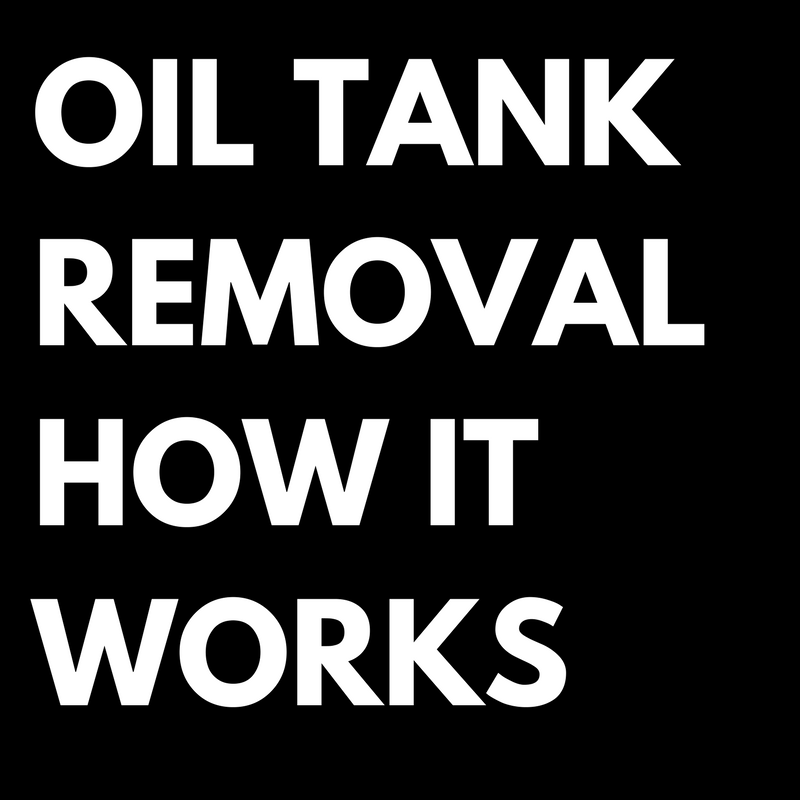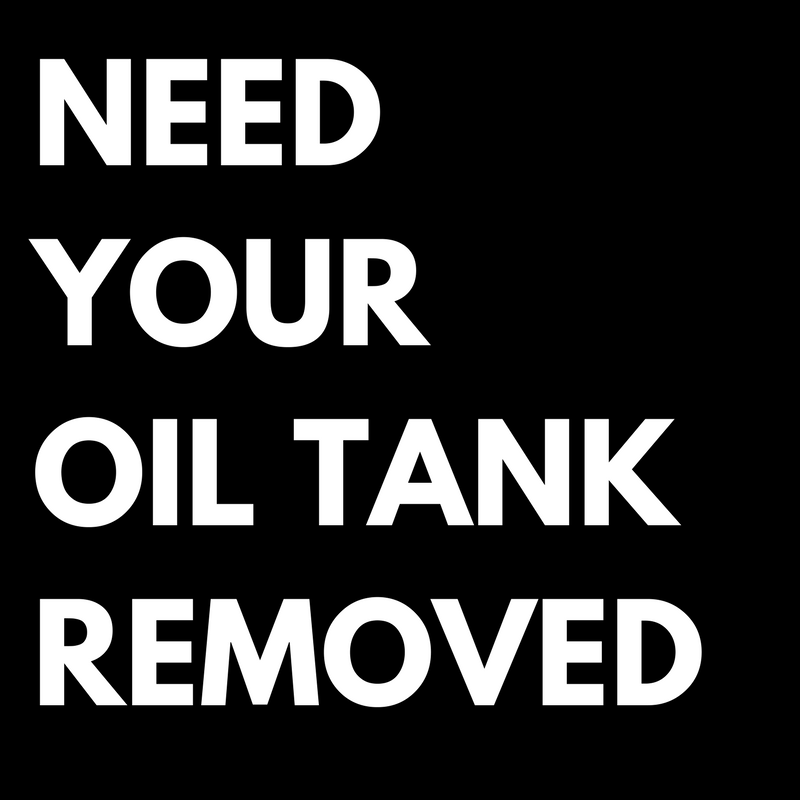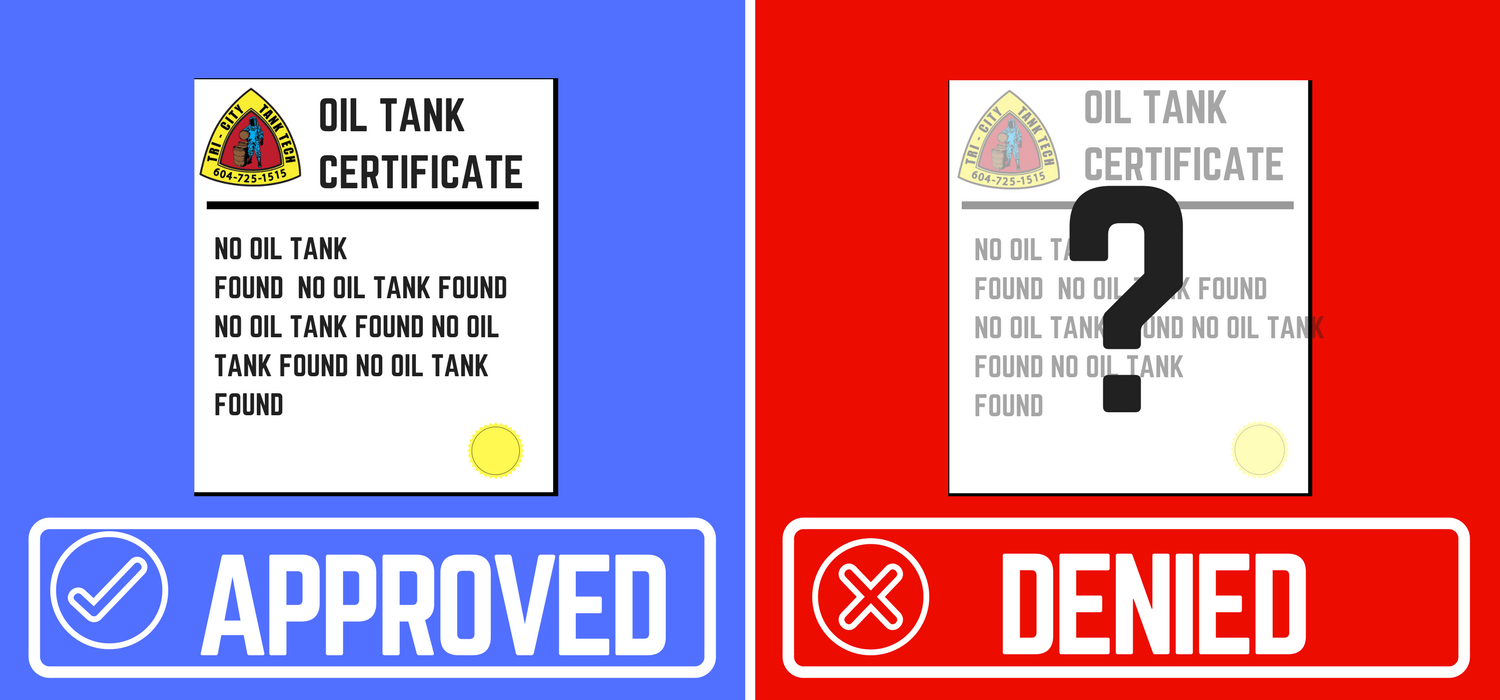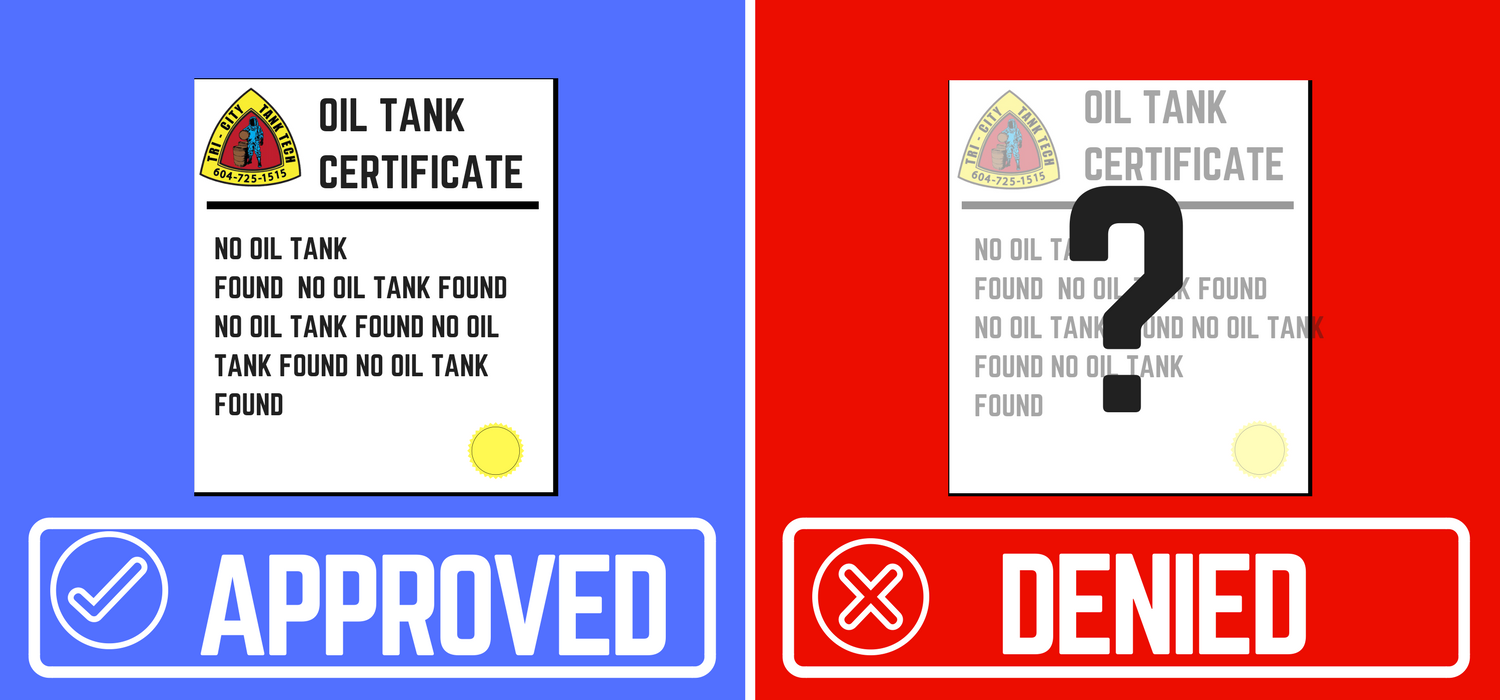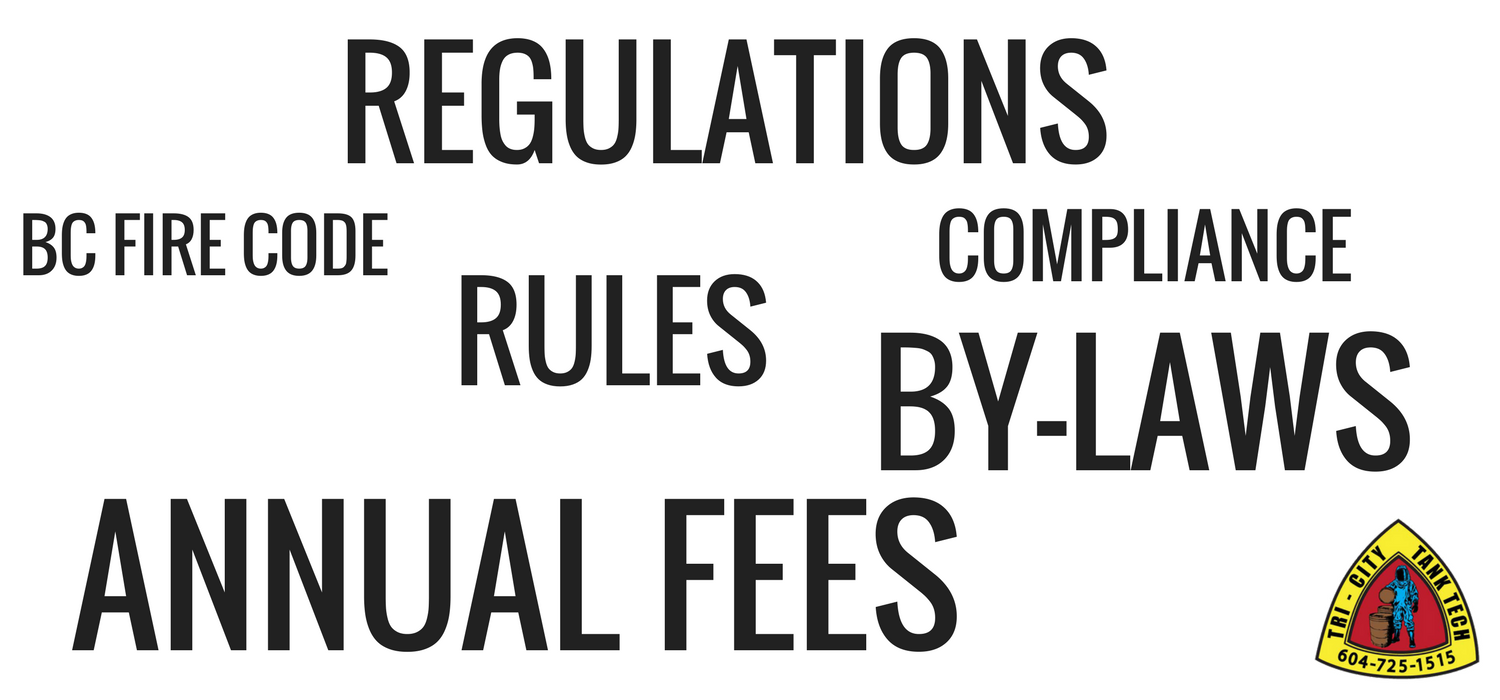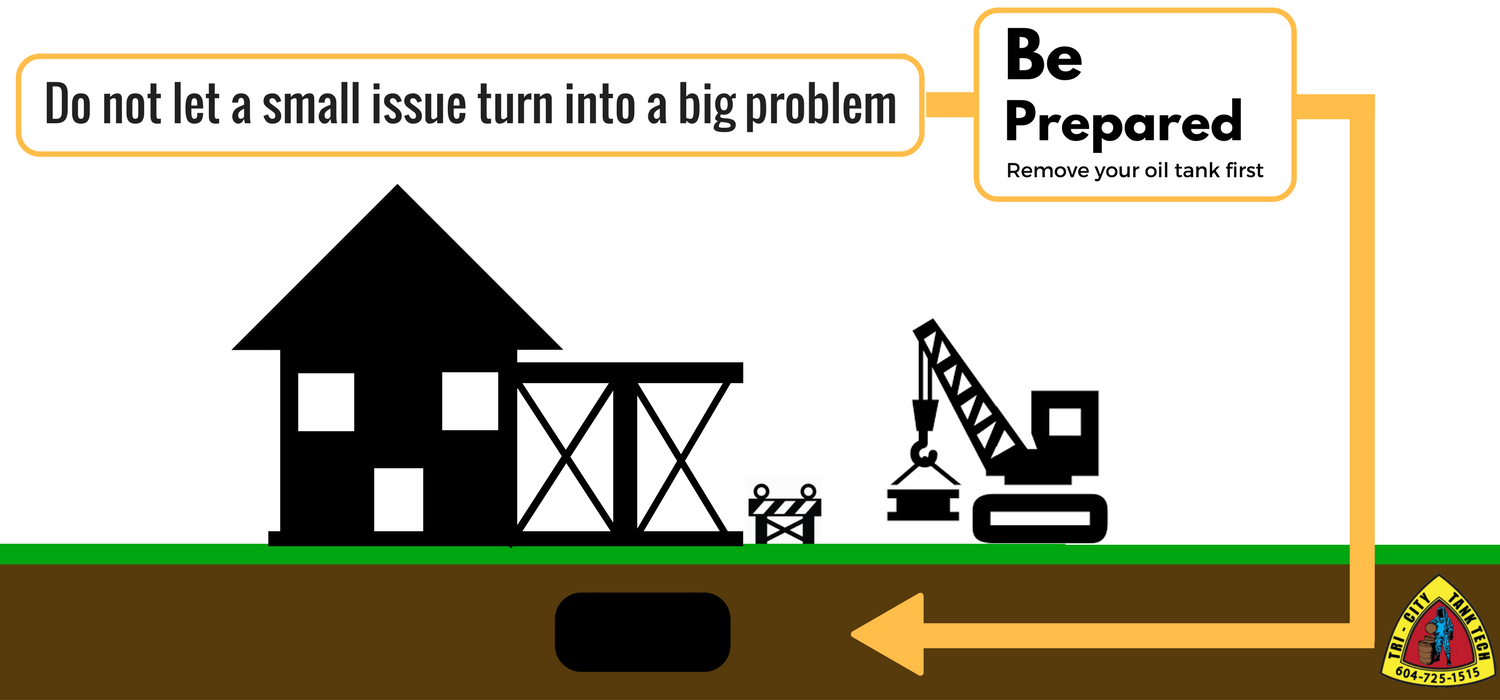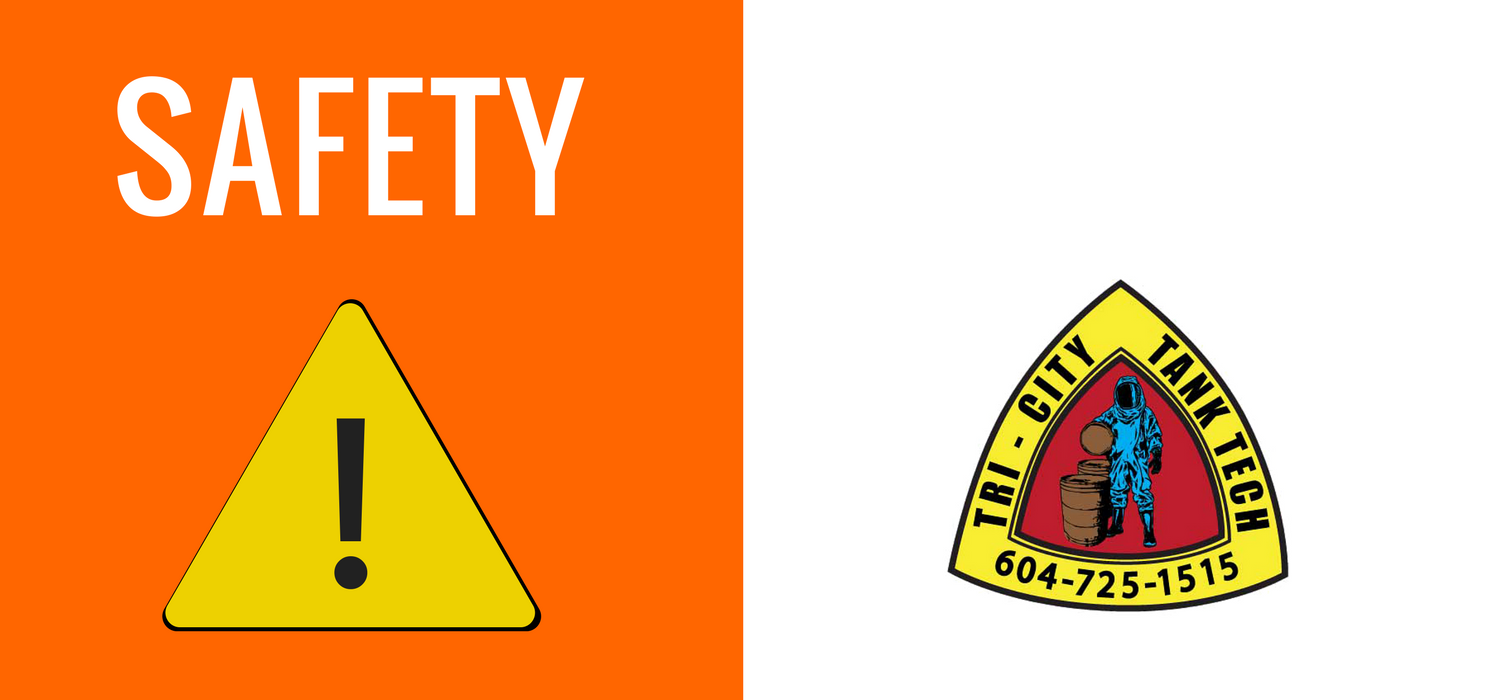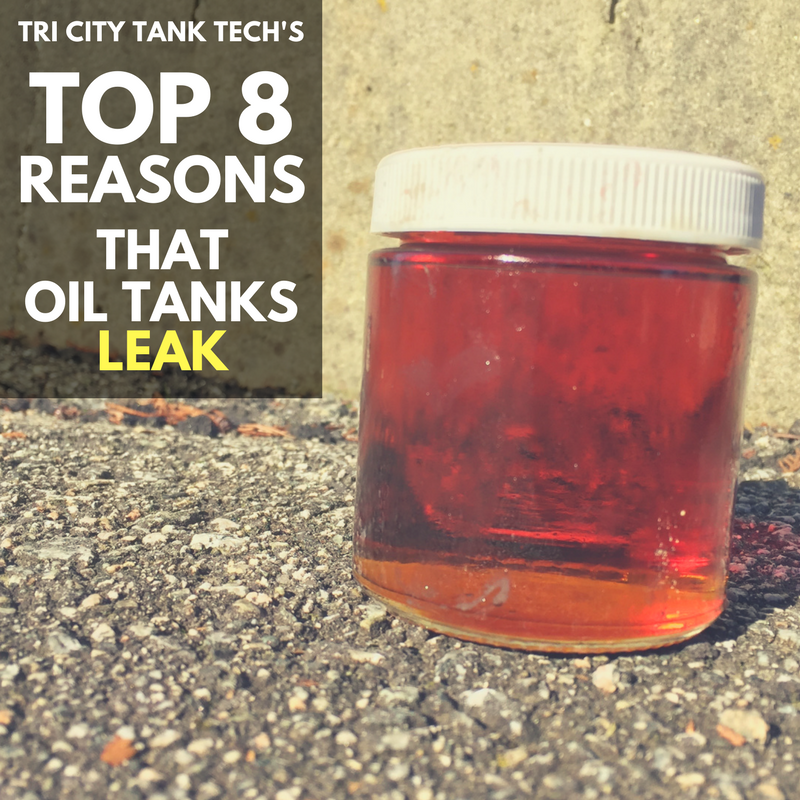While the sale of a property is usually the number one reason for an oil tank removal, there are many other common reasons to consider when deciding if you should remove your oil tank.
WHY CHOOSE US
FIND OUT WHY TRI CITY TANK TECH IS THE PREFERRED CHOICE OF REALTORS, BANKS, HOME INSPECTORS AND MORE...TRI CITY TANK TECH | YOUR OIL TANK REMOVAL EXPERT
- COMPETITVE PRICING
- FREE QUOTES
- QUICK RESPONSE TIMES
- KNOWLEDGABLE STAFF
- EXPERIENCED
- HIGH QUALITY EQUIPMENT
- QUALITY SERVICE
- A+ BBB
- INSURANCE COVERAGE
- WORKSAFE COVERAGE
Reasons For Oil Tank Removal
1. Property Transactions
As previously mentioned above, many oil tank removals are done during the sale of a property. When you put your property on the market, your realtor will typically ask you if you have or have had an oil tank on your property.
Many times home owners have not heard of an oil tank or at least never thought that they may have one.
If you are unsure if you have an oil tank on your property, your realtor will most likely recommend that you get an oil tank detection before putting your house on the market.
If an oil tank is found on your property, you will most likely be advised by your realtor to get the oil tank removal done as soon as possible.
This is primarily due to the fact that with an oil tank on your property, there is a higher probability that you will not be able to sell until your oil tank has been removed.
Even if a buyer wanted to purchase your property with your oil tank still buried, they would most likely run into obstacles that could effect their ability to purrchase your home. They would probably find it very difficult to find a lender that is willing to give them a mortgage or an home insurance company that is willing insure the property without the oil tank being removed.
But we will go further into that later.
Some people think that they may be able to just sell to a builder and skip the whole oil tank removal process.
However, this strategy can cost you time and money.
Many builders tend to stay away from purchasing properties with oil tanks to the avoid the unknown potenial risks of purchasing a property with an oil tank.
Additionally, when they go to city hall to apply for their demolition permit, there is a higher chance that they may run into road blocks during the application process.
Time
By going after a limited group of buyers you could potential lose time.
If you limit your sales to one group, you may have less buyers interested in your home;therefore, it may take longer to sell your home.
Money
By not removing your oil tank it could potentially cost you more.
If you have a oil tank on your property it can make builders weary.
Ultimately, they will be taking on the risk of the oil tank removal, as a result they may ask for substantial reductions in your listing price.
We have received many calls over the years from builders who are prospective buyers and are concerned about the costs that they may incur by purchasing a property with an oil tank on it.
Most builders main goal is to make a profit, so if they do not know how much risk they are facing, it can hard to estimate how much profit they will make or potentially lose.
Many times the builder will either been scared off, ask for a large price reduction or they will request that the seller take care of the oil tank removal before they purchase the property.
Not knowing in advance if your oil tank has leaked can be frightening and frustrating for many clients.
This is a common concern for many people surrounding their oil tank removal.
We understand that the unknown factor of the oil tank removal process can be quite stressful for property owners.
On the other hand, I’m sure that you can understand why most potential buyers may be scared of as well.
Even if you did find a purchaser (which is rare) that is willing to take on the risk of buying your property with an oil tank on it, they will most likely ask for a dramatically reduced price on your home.
This scenario will many times cost you more money than if you removed the oil tank yourself.
If your oil tank is not removed before selling, we have heard stories of potential purchasers asking for $30,000 to $100,000 in price reductions.
While there are extreme projects that can amount to this, we find that most of our jobs do not even come close to this cost.
Consequently, the high price reduction is somewhat of a risk assessment. Typically from their prospective, not knowing if the oil tank has leaked can be unsettling.
Essentially, they are trying to ensure they will be covered if there are any issues in the future.
In conclusion, it is rare to have a job cost as much as the above price reductions;therefore, most times you may save money by getting your oil tank removed before selling your home.
Reasons For Oil Tank Removal
2. Mortgage Applications
Whether you are applying for a new mortgage or trying to renew your existing mortgage, you should be prepared for the dreaded question “do you have an oil tank?”.
During the last 3 to 4 years we have noticed an increase in financial institutions requesting oil tank removal or oil tank detection certificates from their applicants.
We find that many financial institutions tend to label oil tanks as a liability. As a result it can be quite difficult to find a financial institution that will approve or renew your mortgage application with out your oil tank being removed.
Reasons For Oil Tank Removal
3. Home Insurance Applications
As with the mortgage application process, it can be quite difficult to be approved for home insurance if you have an oil tank on your property.
Even during the renewal process of home insurance policies, many companies are requesting that their clients remove their oil tank before they submit their renewal application.
Some insurance companies may have policies that cover oil tanks, but these policies can be quite expense.
Reasons For Oil Tank Removal
4. Complying with local government regulations
There is a wide range of reasons why a property owner would remove an Underground Storage Tank from their property, and adhering to your cities by-laws is an important one.
According to the BC Fire code section 4.10.3.1
“Property owners should remove their underground storage tanks that have been out of service for two years or more.”
This By-law can be difficult for cities to enforce as many people still do not know what an oil tank is or if they have one.
Important note
Some cities may require that the property owner gets an oil tank detection to determine if they have an oil tank on their property.
If the property owner does not sumbit an oil tank detection or oil tank removal report, they may be subject to annual fees from the city.
For this reason many people remove their oil tank instead of paying the annual fees.
Reasons For Oil Tank Removal
5. Preparing for a renovation
If you are getting ready for a renovation or demolition, you may want to find out if you have a oil tank on your property first.
If unfortunately an oil tank is found on your property, it is highly recommended that you remove your oil tank before your renovations start.
By removing your oil tank before renovating, you could potential save money and eliminate the risk of damaging your oil tank during construction.
The 3 most common reasons to remove your oil tank prior to renovations or demolition are:
Save Money
Lets say for example purposes you have decided to build a deck or repave your driveway.
The last thing on your mind would be an oil tank removal.
Now because these types of improvements do not typically require excavating deep into the ground, you may not encounter any hiccups during the renovation. However, in the future if you discover that there is an oil tank buried in that area you could potentially have to damage and replace/repair your recent renovation.
Save Money
Lets use another example…
Lets say you have decide to build a coach house or extension onto your existing home.
In this scenario, if there is no oil tank detection before you start your project, there is a risk that you may come across or even worse damage your oil tank during the excavation.
If the oil tank is ruptured during the excavation, it could potentially contaminate the surrounding soil.
Not damaging your oil tank during the excavation would be the best case scenario;however, dependant on how far along they are in the project, it may cost you more money to remove your oil tank if new obstructions are now present related to your renovation.
Next, if they do not discover your oil tank during your home improvements this can lead to expensive issues in the future as well.
For example:
If they build on top of your oil tank, it may very expensive to remove your oil tank in the future due to new obstructions and/or limited accessibility.
- We have removed oil tanks from clients living rooms because their addition was built on top of their oil tank.
- We have had clients build decks or pour new concrete, only to find out later that they had an oil tank in that area
Another issue caused by building on top of your oil tank would be the risk that may be posed from the oil tank collapsing from corrosion over time and/or the added weight of the newly built structure.
An oil tank collapsing with a structure above it or near by, could lead to small issues such: as windows and drywall cracking to major structural issues.
Save Money
Also if the new structure limits access to your yard but was not built on top of your oil tank.
This would most likely make your oil tank removal more expensive because the yard may not be as accessible as it once was for excavators or backfill materials.
For Example:
We have had clients who built their coach home and then later discovered that they had an oil tank.
Their yard was previously easily accessible for excavators, but now that their coach home limits accesibility yard, their oil tank can only be removed manually with a shovel and a tri pod.
I know today it may seem as just another expense to save up for an oil tank removal before you plan to renovate.
But in the end, by removing your oil tank before your renovation starts, you could potentially save thousands of dollars and avoid a potentially stressful situation in the long run.
Reasons For Oil Tank Removal
6. Being Proactive
Some homeowners prefer to remove their oil tank proactively for peace of mind.
Removing your oil tank proactively means not having to…
- deal with the added pressure in the future when selling your home
- run into problems when renewing your mortgage or insurance policies
- pay annual fees to the city
- be limited on your renovation aspirations
- think about what lies beneath the ground and if your oil tank is leaking = piece of mind
Reasons For Oil Tank Removal
7. Health and Safety
Oil tanks can pose health and/or safety risks.
Albeit rare to hear about residential explosions, or people getting sick from their oil tanks, there is a possibility that under the certain circumstances you may be effected.
This part of the blog is not meant to be seen as “scare tactics”, it is just intended to inform you of some of the potential risks of having an oil tank on your property.
Health
If fuel oil has ingressed into your basement over time, you may potentially be exposed to vapours from on a regular bases.
Secondly, if your main water source is well water, there is a possibility that it may leach into your water system.
Potentially you can be bathing, watering your garden, doing laundry or even drinking contaminated water.
Safety
Dependant on the contents of your storage tank, your tank could potentially be the cause a fire or explosion on your property.
These events seem to be quite rare but under the right conditions an incident can occur.
Storage tanks can hold many types of liquids, but for the purpose of this article we will talk about oil tanks exclusively.
It is true that fuel oil as a liquid has a low flash point rate;however, the main risk of fire or explosion is caused by vapour build up which can become quite volatile.
Some homeowners have been known to try to dispose of various types of fluids in their oil tanks, such as: paint thinner, household cleaners, motor oil and various other chemicals.
Depending on the combination of products added to your oil tank, this action can lead to dangerous immediate or future reactions.
Also another important scenario to consider would be the potential risks that an oil tank can pose if you had an unrelated fire on your property.
An oil tank can elevate the severity of a fires status quickly.
Please check out this link to a related news article written by the Maple Ridge-Pitt Meadows news.
In this article, the fire department comments about the oil tanks that were present during a fire that they responded to.
“If we couldn’t keep those cool, then we would have had to evacuate the whole area.”
Additionally, over time as your oil tank corrodes there is a possibility that in may collapse.
The possibility of the oil tank collapsing and causing personal injury is less likely because your oil tank will typically slowly corrode over time and gradually form a sink hole. However, if people are walking over the sinkhole there is a chance that an injury may occur from the added distrubance and weight.
If you have structures built in the area, an oil tank collapsing could quickly become a safety risk or cause expensive damage due to the added weight in the area, for example: sheds, additions, decking or if your oil tank is located in your driveway.
Reasons For Oil Tank Removal
8. Reducing, preventing or mitigating potential leakage from your oil tank.
Years ago when oil tanks were sold, many companies would estimate that the life expectancy of their oil tanks were approximately 20-25 years.
With that considered, the sooner that you remove your oil tank the better.
Important to note
Most oil tanks are well beyond 20-25 years old and just because your oil tank has most likely passed its “expiration date” it does not necessarily mean that your oil tank has leaked.
Pretty much most of the oil tanks that we remove are much older than 25 years old.
Keeping that in mind, we often remove old oil tanks with minor to no soil contamination issues at all.
Every oil tank is unique, from water tables to the soil conditions surrounding your oil tank, there are many factors that can result in your oil tank to leaking.
Some people may say…
“the oil tank has been buried this long, why bother taking it out now?”
I guess the best answer would be quicker you address the oil tank removal, the less likely that you will have to deal with the worst case scenario.
If your oil tank is not currently leaking, the longer you leave it buried underground will increase the chances of it leaking.
Additionally, if your oil tank is currently leaking, the longer you leave it buried can increase the chances of the soil contamination migrating further.
A good example would be to compare an oil tank removal to a leaking roof.
If you address the leak quickly, you will probably only end up having to repair the roof.
However, if you wait a season or the leak goes unnoticed, you will most likely have to deal with additional issues such as: water damage and mold.
Similar to the example above, the quicker you deal with your oil tank, the less likely it will leak or at least it will limit the spread contaminated soil.
Remember, not every oil tank leaks and not all properties are contaminated. By being proactive about your oil tank removal, you can potentially save thousands of dollars.

Matthew Szwaba
Chief Operating Officer
604-715-1000
Tri-City Tank Tech ltd
